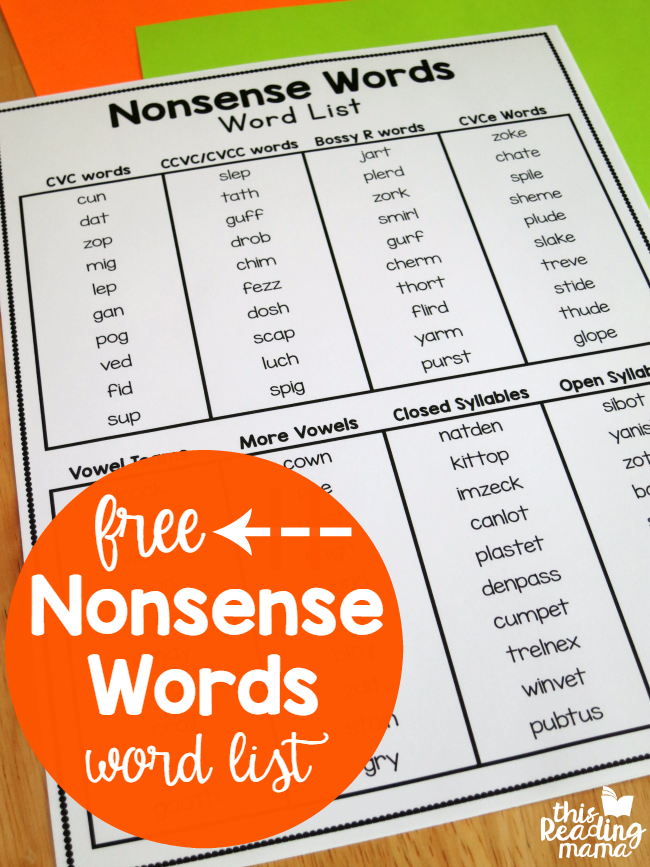

He suggests being tolerant when other writers use them. Murphy is talking about expressions like “to boldly go,” which used to be considered bad grammar. “That is” and “for example” are perfectly respectable English phrases. My position is different – and simple: Don’t use them.

means “for example.” He urges his readers not to criticize writers who get those Latin abbreviations confused. Don’t be one of them.” He’s right, and I’m applauding. Murphy says, “ Believe it or not, there are people who get really worked up about this rule. (I like it, but I never insisted that my students use it.) This is the rule about using a comma before the last item in a list: “red, white, and pink roses.” That comma is optional.
#Nonsense word writer how to
Most of Murphy’s rules fall into the category of usage – writing practices that 1) are subject to change over time and 2) don’t alter the structure of a sentence.ĭon’t waste your precious time learning how to diagram sentences and label parts of speech! Be careful with usage, and you’ll see a big improvement in your writing. Many important issues lie outside of grammar: word choice, capital letters, and many punctuation rules, for starters. (A close synonym would be syntax.) Far too many people believe that if you master the rules of grammar, you’ll be a great writer.

Grammar should be reserved for rules that explain how to put a sentence together. I like to see writers run a red light once in a while! And “Like Now” is too folksy for an article about – of all things – correct grammar. I think Murphy’s title is a mistake: “17 Grammar Mistakes You Need to Stop Correcting, Like Now.”Ī strict grammarian would say that two things are wrong here: You should spell out a number ( Seventeen instead of 17) at the beginning of a title or a sentence.


 0 kommentar(er)
0 kommentar(er)
